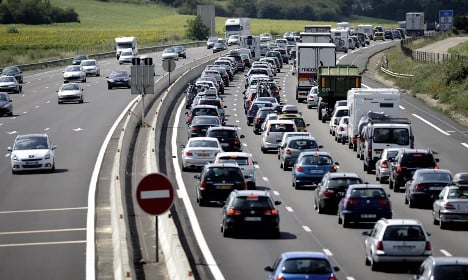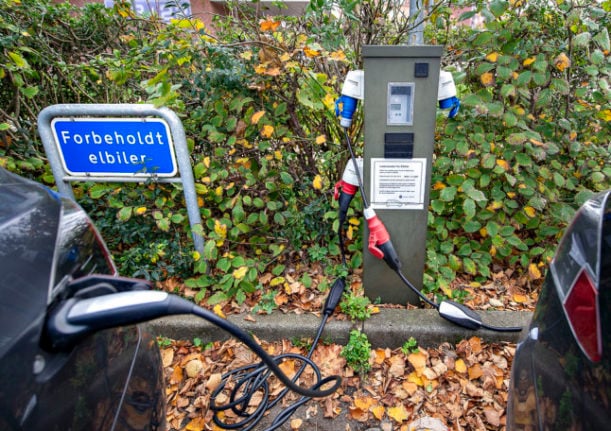ROADS
The ten most expensive motorways in France
A new study has shone a light on which stretches of motorway in France cost the most per kilometre.
Published: 30 June 2016 17:34 CEST

Photo: AFP
If you've driven on a French motorway, you've almost certainly been hit by the tolls. Some are just a few euros, while others can be eye-wateringly expensive.
On Thursday, Internaute.com released its annual study into the most expensive motorways, taking into account the changes in prices that kicked in on February 1st.
The most expensive – by far – was the A14 from Paris to Orgeval (to the west of Paris) at a whopping 52 centimes per kilometre. This is more than three times as costly as the second placed motorway.
The motorway that runs from the La Défense business district on the western edge of Paris is just 15.6 kilometres long, but depending on the time of the day can cost up to €8.30 at peak times.
At its cheapest the motorway is just €1.50, however.
The second most expensive is a much longer highway at 140 kilometres, connecting Langon and Pau in south western France. The ride costs motorists €23.30 in total.
The third priciest was the motorway connecting Sens and Artenay in central France, a 130-kilometre motorway that costs €19.90 – or 15.3 cents per kilometre.
The group reports that tolls rose in France by 1.12 percent compared to last year, and by 16.4 percent over the last ten years.
Here is the full top ten
1. A14 Paris-Orgeval : (52 centimes/km)
2, A19 Sens-Artenay : (15.1 centimes/km)
3. A65 Langon-Pau (14.8 centimes/km)
4. A86 Super périphérique parisien (13.29 centimes/km)
5. A43 Lyon-Modane-Tunnel du Fréjus (12.90 centimes/km)
6. A43 Lyon-Tunnel du Fréjus (12.75 centimes/km)
7. A40 Mâcon-Tunnel du Mont-Blanc (10.84 centimes/km)
8. A11 Paris Ponthévrard-Nantes (10.61 centimes/km)
9. A8 Coudoux-Italie (10.35 centimes/km)
10. A85 Angers-Vierzon (10.29 centimes/km)
Url copied to clipboard!


 Please whitelist us to continue reading.
Please whitelist us to continue reading.
Member comments